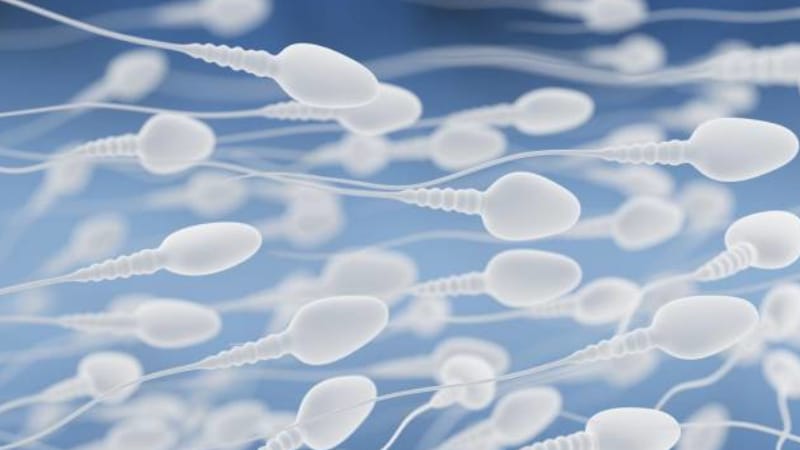If you’re curious about donating sperm, just hold your horses.
Yes, there’s money to be had. But there are also a monumental number of prerequisites, hoops, and barriers to get through first.
AUTOMATIC DISQUALIFICATION
There are some things that will put you immediately into the “no” pile.
- Having a hereditary disease
- Being too young or too old (18-39 is the threshold)
- Being too short (most recipients ask for tall donors)
- Being too tall (way above average)
- Being an IV drug user (or any drug user)
- Being very under or overweight
- Having visited some “at risk” areas for certain diseases
- Being unhealthy in general
- Taking certain medications that affect fertility
- Being too active (exercises that can hurt sperm)
- Being adopted (no family medical history)
- Being gay or sometimes bisexual (horribly homophobic, I know)
- Having been exposed to HIV, hepatitis B and C, HTLV, syphilis, genital herpes and/or genital warts.
- Being uneducated (you’ll need at least some kind of college degree or higher – some clinics even only accept ivy league schools)
The health ones are easy to understand. The gay one just makes my head explode. However, the other ones might leave some people confused.
For the most part, it comes down to demand. Clients ask for certain things and the clinics then screen for those traits. In some places, Caucasian skin is wanted while Asian tones are demanded in others, and so on. The “education” one is more of a sales gimmick for the clinics to justify their high price tags – because obviously, your education has nothing to do with your sperm count or strength.
Here’s the figurative rub.
99.9% of places will only let you donate to a place that is close to you. So if they say no, you’re out of luck.
THE SCREENING PROCESS
If you manage to make it past the first hurdle, there’s a gauntlet of questions after. You can also expect it to take from 8 weeks to 6 months depending on the clinic.
- A physical exam, and one around every 6 months while you’re donating
- Semen samples to test if the sperm is healthy
- Another blood test for genetic conditions
- An extensive medical history (2 to 3 generations ago)
- Interview on personal sexual history
- A psychological exam
Psychological tests?
Yep – mostly about your thoughts on information privacy, why you want do donate, your relationship with a recipient (if any), your partner’s feelings on donation, etc. But there’s also screening for actual mental problems or conditions.
YOU PASSED? YAY! THERE’S MORE…
Let’s assume you’ve found yourself into this VIP club. It doesn’t end there.
Sperm donation is a huge commitment.
You’ll be expected to donate at least once a week (maybe even 2 to 3 times) for a period of time ranging from a few months to a year (because it can often take multiple inseminations to get a woman pregnant). On top of this, you’ll have to stay healthy, eat right, avoid smoking or drinking alcohol, take suggested supplements, drink plenty of water, and anything else that helps keep your donation in the best condition possible.
You also can’t ejaculate 2 to 5 days before your donation. So, if you do the math, this means that you won’t be having sex for a year.
DONATING IS HARDER THAN YOU THINK
Even though you’re in a private room, sperm banks aren’t known for their sexy atmospheres. They DO provide material, but it might not be to your taste (although you can totally bring your own – even an external sex toy). On top of that, you can NOT use any lube or saliva because it will contaminate the specimen.
I know you’re probably asking if you can just do it at home?
The answer will 99.9% be “no way”.
OTHER INTERESTING INFO
- Samples older than an hour are no good
- Some labs provide special condoms to masturbate into
- Most donors are college students
- Hot or cold temperatures will render the sample disqualified
- Walk-in appointments are never accepted
- You will never know if your sample results in a child
- Between 50-80% percent of donations don’t survive the freezing process
- If you test positive for any medical conditions, they will notify you
- There’s a limit of how many children you can sire
- Each round of insemination with donor sperm can cost between $200 and $800; more than one round is often needed.
- Your sperm is “washed” to catch the most potent swimmers
- Your donor can be a friend
If you want more interesting articles, you might like these…
- 10 Tips For Healthy Sperm – How to Make Your Swimmers Stronger
- Is Sperm Good for the Skin? Looking at Both Sides of the Cum Coin
- Automatic Sperm Collector from China – Yep. You Heard Me Right
How about you? Would you ever commit to donating? Have any thoughts you want to put out there? Share in the comments!


